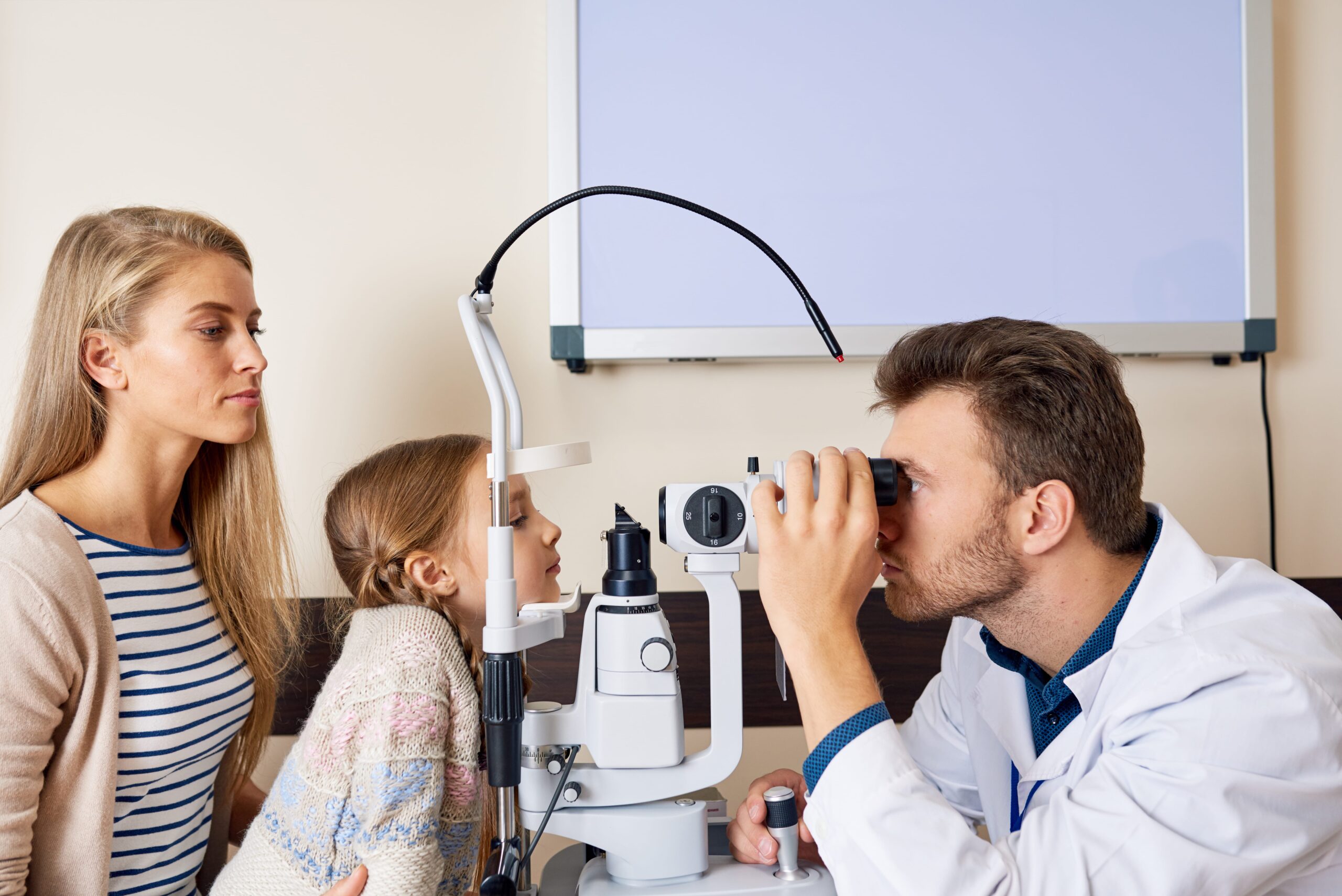Regular ocular examination are simple, quick, and painless. To make sure your eyes are healthy and that your prescription is current or to find out whether you need one, most doctors advise having your vision checked once a year. The best defense against conditions of the eyes, such as glaucoma, chronic dry eye, inflammation, age-related problems, and cataracts, is routine eye checkups.
Tests Taken Before Exams
Before you meet the doctor, a technician will frequently conduct a few standard tests. These tests may include a cover test to assess how well your eyes work together, a glaucoma (or “air puff”) exam, a color sensitivity test, and a peripheral vision test. To estimate your vision requirements, he or she may also utilize an autorefractor, which measures your prescription automatically.
The Pupillary Response
The doctor measures the reactivity of your pupils using a light. Your ability to see clearly depends on how your pupils react to light, which is a normal function of the eye. The doctor will examine the surface of your eye with the light to check for bacteria, scratches on the cornea, and signs of dry eye.
Try a Slit Lamp
A vertical bar of light will be shone into your eye by the doctor during a slit light test, also known as a biomicroscope, to enlarge the surface of your eye and check for anomalies on the cornea, iris, and lens. You could be asked to blink or fix your gaze on your doctor’s ear during this brief but generally lengthy test so he can examine the surface of your eye in detail.
Refraction and Visual Acuity
The visual acuity test is the component of the eye exam that is most well-known. During this assessment, your doctor may instruct you to use one or both eyes to read an eye chart containing letters and numbers. Clear and accurate recognition of these letters and figures is crucial for your doctor to determine the specifics of your vision prescription. Throughout the examination, your doctor will also inquire about how different lenses affect your vision, all while a large lens refractor is positioned in front of you to pinpoint your precise prescription.
Pupil Enlargement
When the examination is about to end, the doctor might ask if you want your eyes dilated. Your eyes will dilate so the doctor can undertake a more thorough examination of your retina and optic nerve. In order to undertake this portion of the examination, the physician will apply a few drops to your eyes, which will cause your pupils to dilate. This will allow the physician to see more clearly within your eye. It’s advisable to stay out of direct sunshine for up to an hour following the test because your eyes could be light-sensitive for that long.
How to Get Ready for a Thorough Eye Exam
In order to be ready for your test in Lake Worth, you ought to gather the following information:
- An outline of the medical history you and your family have had
- A list of all the symptoms you’re having relating to your eyes or vision
- All of the medications you use, including over-the-counter ones
- Details about your vision insurance, if any
- Anything you would like to ask the optometrist
- To your eye exam, you should also bring any corrective lenses you currently wear, such as contacts or glasses.
In case your eyes dilate during the exam, it’s a good idea to pack a pair of sunglasses for afterward. Your retinal health is assessed during a dilation, and the drops used to enlarge your pupils may temporarily impair your eyesight and make you more sensitive to light.
You might also think about asking a reliable person to drive you home after your test in Lake Worth if your optometrist’s office is far from your home.
Conclusion
Above and beyond a standard eye exam, an in-depth eye exam in Lake Worth covers the whole range of tasks, including measuring visual acuity and refraction, dilatation of the eyes, and screening for diseases and disorders of the eyes.
It is normal—in fact, instinctive—to feel a little uncomfortable when someone is close to your eyes. Your eye doctor, however, is the one person you should always make an exception for.
Your optometrist in Lake Worth is qualified to examine your eyes and provide necessary treatments for the health and vision of your eyes as a medical practitioner. Both for routine maintenance visits and at the earliest indication of eye problems, you should see them.



